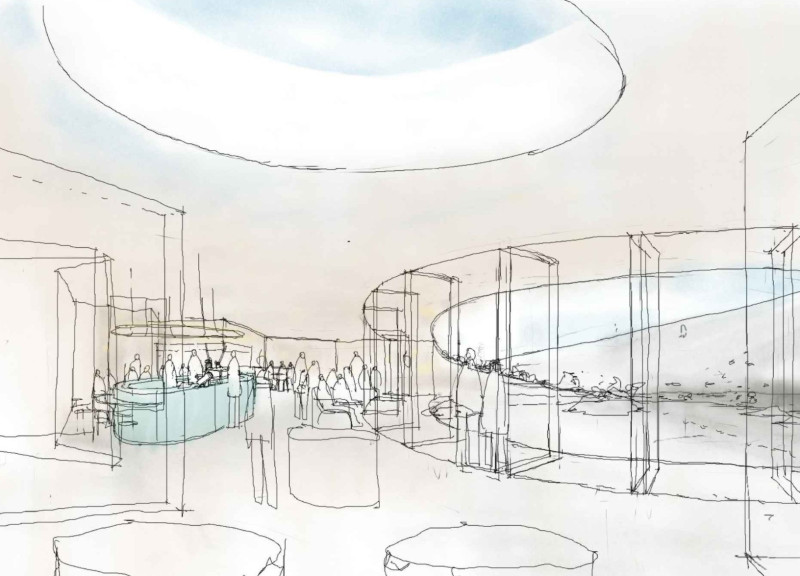5 key facts about this project
The design draws attention to the connection between built environments and the natural world. Located in a beautiful setting, it combines a coffee shop and visitor center, enhancing the experience of nature for its users. The design concept prioritizes minimizing the visual impact of traditional structures, making sure that the facilities blend into the landscape. Visitors are invited into a space where the emphasis is on nature, allowing for a deeper connection to the surroundings.
Spatial Organization
The layout effectively hides parking areas from view, ensuring that visitors are greeted by the landscape rather than vehicles. The entrance, carved into the mount, serves to guide people into the interior. Once inside, visitors find the coffee shop on the left and the visitor center with a rounded skylight on the right. This thoughtful arrangement enhances movement within the space and creates a strong link between the indoor and outdoor experiences.
Materiality
Materials play a crucial role in the overall design. Cast concrete is used for the retaining walls and flooring, offering durability that fits well with the natural environment. This choice allows the structures to maintain a unified look. The wooden slats on the ceiling add warmth to the interiors and improve sound quality, making the spaces comfortable and inviting.
Natural Integration
A standout feature is the rain harvest pond, shaped like a crescent moon. It serves both ecological and aesthetic purposes, acting as a visual point that connects the interior with the exterior landscape. Larger boulders positioned around the site soften the entrance path, creating a calming transition that enhances the peaceful atmosphere of the area.
Detailing
Attention to detail is evident in how the design encourages exploration. As visitors approach the coffee shop, they move through a space that feels connected to nature. The careful planning of elements within the design cultivates an environment that invites engagement with both the architecture and the landscape. This integration establishes a thoughtful relationship between the structures and their natural surroundings.




















































